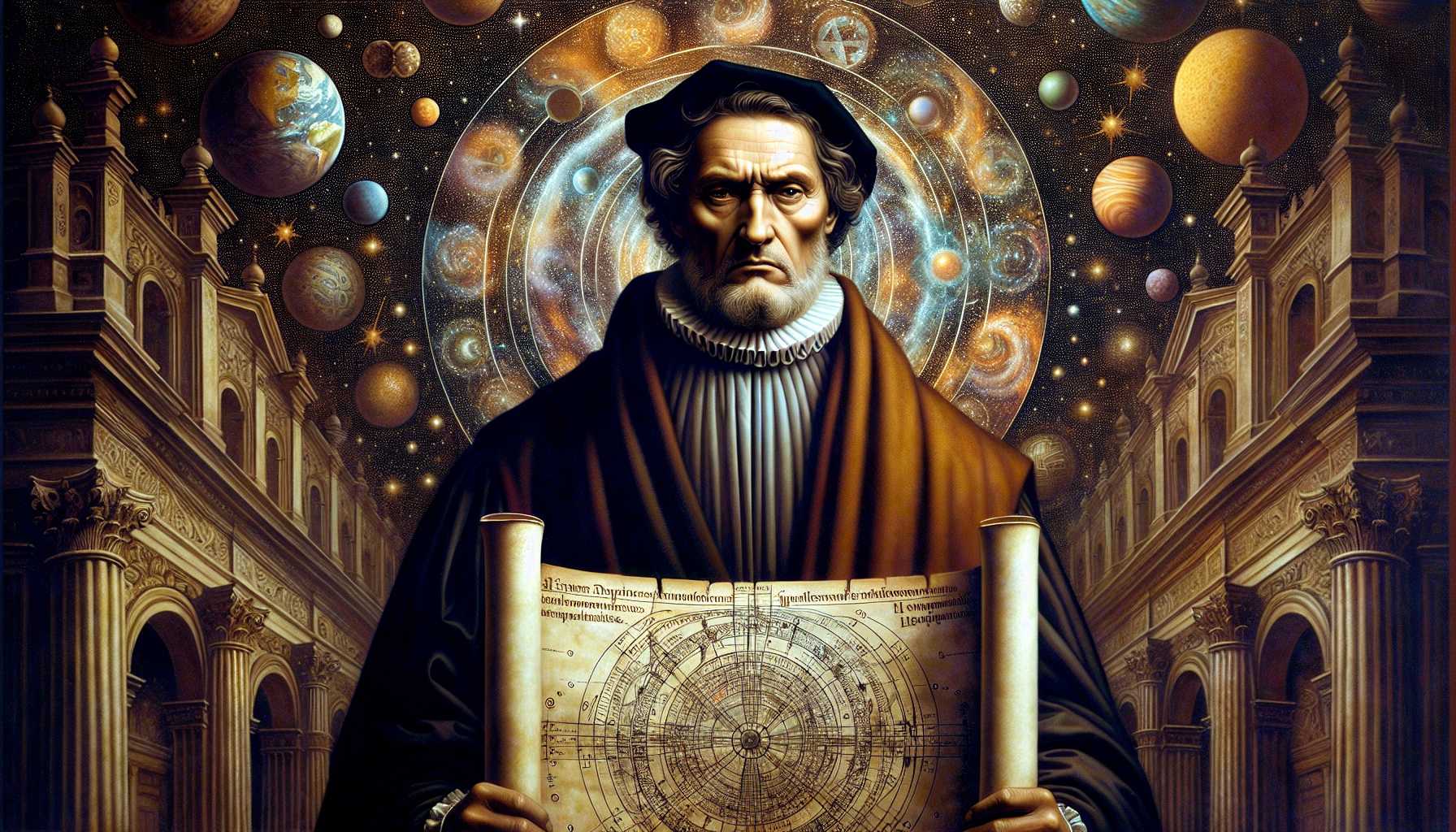
Giordano Bruno The Philosopher Who Challenged the Universe
Giordano Bruno was an Italian philosopher, cosmologist, and poet of the Renaissance who is best known for his proposal of an infinite universe and the plurality of worlds.
Giordano Bruno was een Italiaanse filosoof, kosmoloog en dichter uit de renaissance die het meest bekend staat om zijn voorstel van een oneindig universum en de pluraliteit van werelden.
He challenged the geocentric model of the universe, advocating instead for a heliocentric view and a vast universe filled with numerous stars and planets, many of which could potentially support life.
Hij uitte kritiek op het geocentrische model van het universum en pleitte in plaats daarvan voor een heliocentrisch perspectief en een uitgestrekt universum vol met talloze sterren en planeten, waarvan velen mogelijk leven zouden kunnen ondersteunen.
Bruno's ideas were controversial and opposed to the prevailing beliefs of his time, particularly those of the Catholic Church, leading to significant conflict over his views.
Bruno's ideeën waren controversieel en tegen de heersende overtuigingen van zijn tijd, vooral die van de katholieke kerk, wat leidde tot aanzienlijke conflicten over zijn opvattingen.
Bruno's philosophies extended beyond cosmology into metaphysics, emphasizing concepts such as the unity of existence and the importance of individual intuition.
Bruno's filosofieën strekten zich uit voorbij de kosmologie naar de metafysica en benadrukten concepten zoals de eenheid van bestaan en het belang van individuele intuïtie.
He was influenced by Neoplatonism and the Hermetic tradition, which shaped his thoughts on the divine and the nature of matter.
Hij werd beïnvloed door het neoplatonisme en de hermetische traditie, die zijn gedachten over het goddelijke en de aard van materie vormden.
His works included discussions on the infinite nature of the universe, the soul's immortality, and the interconnection of all things.
Zijn werken omvatten discussies over de oneindige aard van het universum, de onsterfelijkheid van de ziel en de onderlinge verbondenheid van alle dingen.
However, his radical ideas ultimately resulted in his persecution; he was tried by the Inquisition and executed in 1600 for heresy.
Echter, zijn radicale ideeën resulteerden uiteindelijk in zijn vervolging; hij werd berecht door de inquisitie en in 1600 geëxecuteerd voor ketterij.
Despite his tragic end, Bruno's legacy persists, as he is recognized as a forerunner of modern science and philosophy, influencing future thinkers and contributing to the transformation of the scientific worldview.
Ondanks zijn tragische einde, blijft Bruno's erfenis bestaan, aangezien hij erkend wordt als een voorlopers van de moderne wetenschap en filosofie, en toekomstige denkers beïnvloedt en bijdraagt aan de transformatie van de wetenschappelijke wereldbeschouwing.
His courage in defending his beliefs has made him a symbol of free thought and intellectual resistance against dogma.
Zijn moed om zijn overtuigingen te verdedigen heeft hem een symbool gemaakt van vrij denken en intellectuele weerstand tegen dogma.
Today, he is often celebrated for his contributions to the understanding of the universe and his bold vision of a reality beyond conventional limitations.
Tegenwoordig wordt hij vaak gevierd om zijn bijdragen aan het begrip van het universum en zijn gedurfde visie op een realiteit voorbij de conventionele beperkingen.
Based on this article
